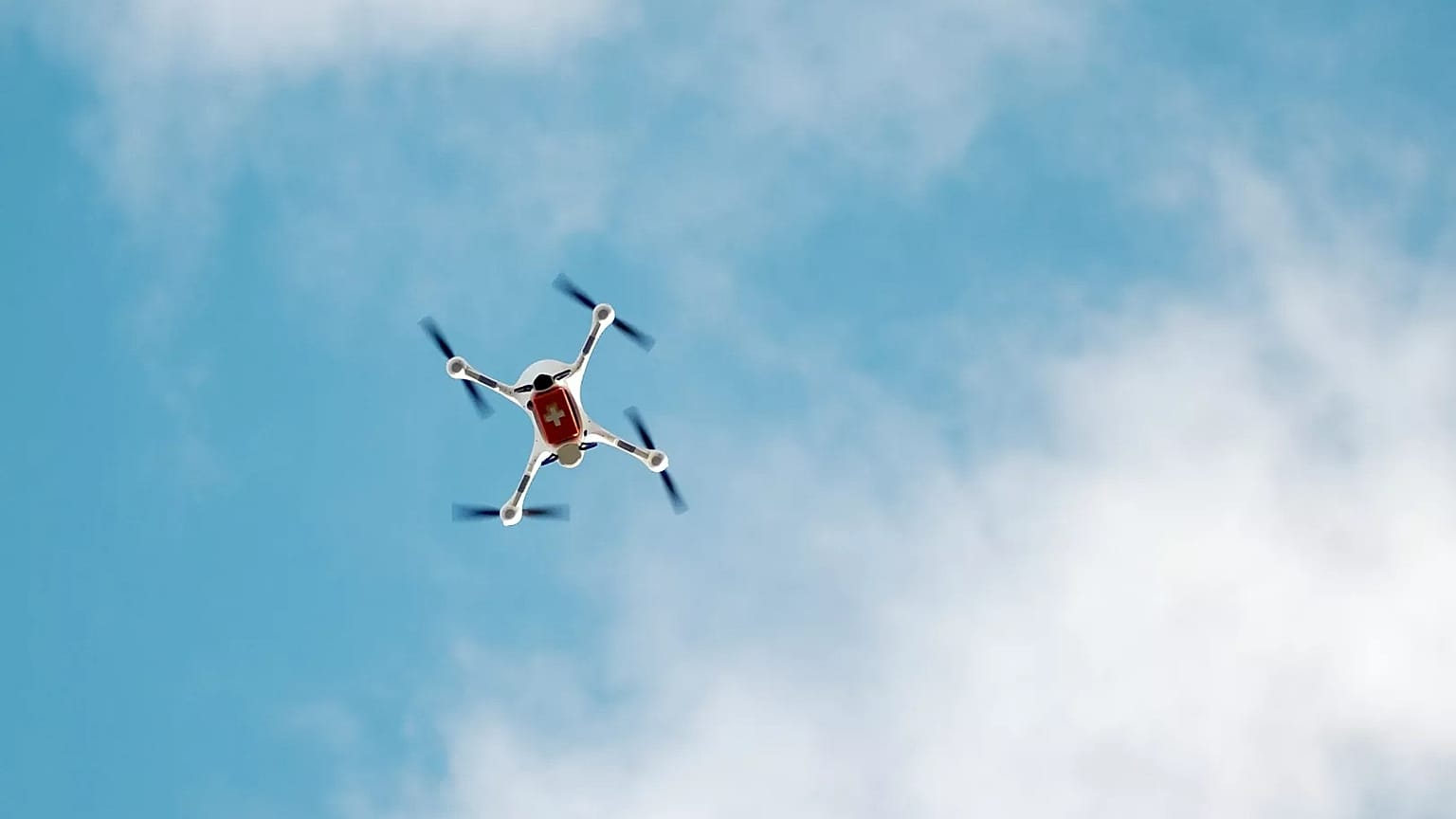Politics
Germany Authorizes Police to Shoot Down Drones Amid Safety Concerns

Germany has taken a significant step in drone regulation by allowing police officers to shoot down unmanned aerial vehicles (UAVs) when necessary. This policy comes in response to recent drone sightings that disrupted operations at Munich Airport earlier this month, prompting officials to announce new measures aimed at managing unidentified aerial vehicles. Interior Minister Alexander Dobrindt confirmed on Wednesday that the federal cabinet approved a reform to establish a dedicated drone defence unit within the federal police.
The decision raises concerns about potential risks to civilian drones that are increasingly vital in various sectors, particularly logistics and healthcare. Drones are being used to transport essential supplies such as medicines, vaccines, and laboratory samples between hospitals and laboratories.
In an interview with Euronews, Norman Koerschulte, founder of Morpheus Logistik, Germany’s sole drone logistics company, highlighted the advantages of drone technology in addressing transportation challenges. “Where we fly, there’s no longer an alternative,” he stated, referencing issues such as traffic congestion and limited taxi capacity. He noted that their drones can transport around 250 laboratory samples per flight, significantly speeding up delivery times.
The increasing reliance on drones for medical logistics is exemplified by the Asklepios hospital group. According to NDR, the organization has successfully utilized drones to ferry medical samples over the 50-kilometer route between Selent and Bad Oldesloe in northern Germany since March 2023. They have conducted approximately 100 transport missions, aiming to alleviate road traffic and ensure a more environmentally friendly transport method for critical medical supplies.
Balancing Civilian and Security Needs
The question remains: can civilian and potentially “hostile” drones coexist within the same airspace? Just as clear regulations govern road traffic, similar guidelines are needed for aerial navigation. In Germany, drones weighing over 250 grams, professional drones, or those operating in sensitive areas must possess a “digital licence plate” known as an EID (Electronic Identification). This system is designed to enhance safety and accountability, as the EID can only be accessed by authorities and authorized entities to prevent misuse of position data.
Failure to display an EID can result in fines up to €50,000, with severe violations potentially leading to prison sentences ranging from six months to ten years. Conversely, mini-drones used solely for recreational purposes are generally exempt from this requirement.
The recent drone sightings in Munich have left local authorities puzzled, as none of the involved drones have been recovered for examination. Drones can also be monitored via the internal fleet management system FLAN, and some transmit position data through ADS-B, a standard used in aviation. However, establishing a direct link between a drone and its operator remains dependent on official registration data.
Calls for Enhanced Transparency in Drone Operations
Koerschulte advocates for a national initiative to improve transparency in lower airspace, which extends from the ground up to approximately 7.5 kilometers. This altitude is where most conventional aircraft, drones, and helicopters operate. He suggests implementing a system that allows for the full identification of all drones within this range. “We would need to introduce this identification requirement nationwide and eventually across the EU,” he stated.
Such a system could facilitate the quick identification of drones potentially used for malicious purposes, contributing to public safety and reducing anxiety surrounding drone operations. Koerschulte argues that rather than resorting to shooting down drones, as suggested by Markus Söder, the Bavarian Minister-President, a more effective approach would be to establish clear identification protocols for all drones.
He emphasizes the importance of ensuring that technology serves both beneficial and protective purposes, noting that every innovation carries the potential for misuse. By fostering a clearer regulatory framework, Koerschulte believes that authorities can mitigate confusion and enhance safety in Germany’s skies.
Germany’s evolving drone policy reflects a growing recognition of the need to balance security measures with the benefits that drones provide in various sectors. As the situation develops, stakeholders across the spectrum will continue to advocate for effective solutions that protect public safety while promoting technological advancement.
-

 Top Stories3 months ago
Top Stories3 months agoTributes Surge for 9-Year-Old Leon Briody After Cancer Battle
-

 Entertainment4 months ago
Entertainment4 months agoAimee Osbourne Joins Family for Emotional Tribute to Ozzy
-

 Politics4 months ago
Politics4 months agoDanny Healy-Rae Considers Complaint After Altercation with Garda
-

 Top Stories4 months ago
Top Stories4 months agoIreland Enjoys Summer Heat as Hurricane Erin Approaches Atlantic
-

 World5 months ago
World5 months agoHawaii Commemorates 80 Years Since Hiroshima Bombing with Ceremony
-

 Top Stories3 months ago
Top Stories3 months agoNewcastle West Woman Patricia Foley Found Safe After Urgent Search
-

 Top Stories5 months ago
Top Stories5 months agoFianna Fáil TDs Urgently Consider Maire Geoghegan-Quinn for Presidency
-

 World5 months ago
World5 months agoCouple Convicted of Murdering Two-Year-Old Grandson in Wales
-

 World5 months ago
World5 months agoGaza Aid Distribution Tragedy: 20 Killed Amid Ongoing Violence
-

 World5 months ago
World5 months agoAristocrat Constance Marten and Partner Convicted of Infant Murder
-

 Top Stories4 months ago
Top Stories4 months agoClimbing Errigal: A Must-Do Summer Adventure in Donegal
-

 Top Stories4 months ago
Top Stories4 months agoHike Donegal’s Errigal Mountain NOW for Unforgettable Summer Views









